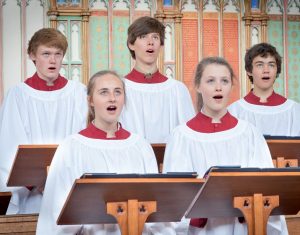Regular inspections ensure high standards of education and boarding provision in ISC-member schools
Independent schools in England
The Independent Schools Inspectorate (ISI) is the agency responsible for the inspection of boarding and day schools in England in membership of the Independent Schools Council (ISC) associations.
The ISI is approved by the UK Government for the purpose of inspecting schools belonging to the ISC associations and reporting on compliance with the Education (Independent School Standards) (England) Regulations 2014, commonly known as the Regulatory Requirements. The ISI also inspects against the Statutory Framework for the Early Years Foundation Stage (EYFS), the requirement for disability access plans (Schedule 10 of the Equality Act 2010), and the ban on corporal punishment.
Under this agreement, the ISI publishes reports on the schools, which are available from the ISI website. As such, it also reports to the government’s Department for Education (DfE) on the extent to which schools meet statutory requirements. The quality of its service is monitored by the Office for Standards in Education, Children’s Services and Skills (Ofsted) on behalf of the DfE. Since 1st September 2011, the ISI has also been responsible for inspecting the boarding provision in independent schools in membership of the ISC, according to the National Minimum Standards for Boarding Schools (NMS), made under section 87 of the Children Act 1989).
The educational provision at independent schools in England not in membership of the ISC is inspected by Ofsted. Ofsted also inspects the boarding provision at state boarding schools in England.
Independent schools in the rest of the UK
The ISC member schools in Scotland, Wales and Northern Ireland are inspected by the relevant national inspectorate.
Scotland
In Scotland, state and independent schools are inspected by Education Scotland. Independent schools, including those in membership of the ISC or the Scottish Council of Independent Schools (SCIS), are registered with the Scottish Government through the Registrar for Independent Schools. In their inspections of independent schools, Education Scotland’s inspectors are mindful of the variety of independent schools, the legislative framework that underpins the independent sector and the widely differing nature of provision. The inspection framework is applied in independent schools in parallel with maintained schools and in a way that is responsive to the size, nature and particular aims and values of the independent school concerned.
Where the school has a boarding element, Education Scotland works in collaboration with the Care Inspectorate to evaluate the quality of the school’s residential provision. Where concerns about the education or other aspects of the school have been raised within the initial inspection, then a continuing engagement inspection would be undertaken to ensure that the points for action are being taken forward. Inspection reports can be viewed at the Education Scotland website.
Wales
Estyn is the office of Her Majesty’s Inspectorate for Education and Training in Wales. Estyn inspects the education provision in each independent school in Wales at least once in the six-year cycle which started in September 2014. The Care and Social Services Inspectorate Wales (CSSIW) inspects welfare provision at boarding schools in Wales once every three years, or earlier when concerns or information require follow up action. Estyn inspection reports can be viewed at the Estyn website.
Northern Ireland
The Education and Training Inspectorate (ETI) is responsible for inspecting the educational provision at independent schools in Northern Ireland every five years. Where a school has boarding provision the ETI carries out a focused inspection, working jointly with the Health and Social Services Registration Inspection Unit (H&SS RIU). The two inspections occur at the same time and a joint report is published. To view ETI inspection reports, click here.
Outside the UK
Beyond the UK, including in the Channel Islands and the Isle of Man, the ISI is one of the inspection bodies approved by the British Government for the purpose of inspecting British schools overseas. As such, ISI reports to the English DfE on the extent to which schools meet the relevant Standards for British schools overseas, a key factor being the extent to which schools provide their pupils with the skills and qualifications they need to enter or re-enter the British education system. The regulatory framework for the inspection of British schools overseas has been revised for implementation from September 2017, with the intention of replicating the updated regulatory standards for independent schools in England and raising the bar for those schools seeking to achieve or maintain accreditation. It is a voluntary scheme and, to remain accredited, schools must meet the standards through re-inspection every three years. To find a list of the schools which meet the standards, with access to their reports and the date of the most recent inspection, visit here.
Inspections at ISC member schools in England
The aims of an ISI inspection
ISI inspections of independent schools are required to:
• Report to the DfE the extent to which ISC schools comply with the Education (Independent School Standards) (England) Regulations 2014 (referred to as the ‘regulatory requirements’).
• Where applicable, report to Ofsted on compliance with the requirements of the Childcare Act 2006, including the Early Years Foundation Stage (EYFS).
• Where applicable, report to the DfE the extent to which schools meet their statutory duty to safeguard and promote the welfare of children for which the school provides accommodation (in practice, whether the National Minimum Standards for Boarding Schools, as most recently updated, are met).
• Assure ISC associations that their member schools maintain the quality of provision expected.
• Help schools to improve, and inform parents of the quality of schools.
How ISI inspections work
ISI inspections integrate education, boarding welfare and, where applicable, EYFS, the latter being the structure of learning, development and care for children from birth to five years old that schools are required to follow. ISI inspections also take account of any self-evaluation by schools, and are carried out by inspectors with a high level of relevant professional training and first-hand experience.
In 2016, the cycle of single-format ‘integrated’ inspections came to a close and has now been replaced by two formats of inspection. In general, a school’s inspections will alternate between the two formats, with inspections occurring at three-yearly intervals, though concerns about the school or non-compliance are likely to result in more frequent inspection.
The size of the inspection team depends on the size, organisation and location(s) of the school. Parents are a vital part of the ISI inspection process and, by means of a questionnaire, can express in confidence their views relating to the pupils and the educational and welfare provision in the school. The frameworks also enable inspectors to gather the views of pupils, by means of a questionnaire and interviews.
1. Regulatory Compliance inspections (RCI)
These inspections have a single focus on whether a school meets or does not meet the Independent Schools Standards Regulations and, where appropriate the National Minimum Standards for Boarding and the EYFS Framework Requirements for Early Years. They have been called ‘binary’ inspections because the inspection team is charged to make only a ‘yes/no’ decision in respect of compliance rather than to make a judgement on quality. The published report is solely a statement of the extent of the school’s compliance and does not include any statement regarding the quality of the school’s education and care. In the report, the judgements on National Minimum Standards for Boarding and on EYFS requirements are organised under the relevant headings of the Independent Schools Standards.
Schools have two working days’ notice of the inspection, which lasts for two days. Schools with boarding or registered Early Years provision can expect inspectors with specific experience in these areas. Inspection teams may include a ‘compliance inspector’, generally not a teacher, but a manager in school with experience in bursarial areas, whose inspection duties will be tailored accordingly.
2. Educational Quality Inspections (EQI) and Focused Compliance Inspections (FCI)
The EQI and FCI inspections, introduced in 2017, are two separate inspections within one ‘inspection event’. These inspections include the inspection of boarding and Early Years. They occur simultaneously over a 2½ day period, generating two separate reports, and are overseen by the same reporting inspector. The EQI judges the quality of the pupil’s achievements and personal development and the FCI is similar to the RCI, with a focus on specific sections of the regulatory framework. The ISI has provided a flowchart to facilitate the prediction of whether a school’s next inspection will be an RCI or an EQI with FCI.
Educational Quality Inspections (EQI)
The EQI focusses wholly on the outcomes for pupils and is divided into two overall judgements, their all-round achievements and their personal development. It reports, for example, on the quality of pupils’ learning and understanding, and on their behaviour and their knowledge of how to stay safe and healthy; features of the school’s provision, such as teaching, facilities and pastoral care are not reported on separately, but rather in terms of their impact on the pupils’ achievements and personal development. Similarly, the quality of the pupils’ boarding experience may permeate the whole report, written to relate how boarding contributes to the boarders’ achievements and personal development.
Focused Compliance Inspections (FCI)
The provision for an FCI includes a risk-based approach to regulatory checks, taking into account factors such as previous non-compliance or concerns about the school. A core of regulatory standards must be checked at every FCI. These are the standards deemed to be of greater significance, which must be checked at three yearly intervals. Beyond this, the risk-based approach will determine which additional standards, if any, need to be included in the focus.
The National Minimum Standards for Boarding and the EYFS requirements which relate to the above standards, and any others selected through the risk-based approach, will be checked at an FCI. As with an RCI, such judgements will be reported under the relevant headings of the Independent Schools Standards.
Inspection of boarding provision
The responsibility for the inspection of boarding provision at ISC member schools in England passed from Ofsted to the ISI in September 2011. Boarding inspections are organised according to the National Minimum Standards (NMS) for boarding schools, which relate to pupils’ welfare and care in the boarding environment. The standards were most recently updated in April 2015. Further information can be found on the DfE website.
ISI school reports
The reporting inspector has the responsibility for drafting the written report on the basis of the team’s agreed findings, including, where applicable, judgements on EYFS and/or boarding provision. The report will include judgements and related explanation in accordance with the relevant inspection framework. The school has the opportunity to comment on any factual errors on receipt of the final draft and the final report is sent to the school after about four weeks. The report will be available on the ISI website within two weeks of its issue to the school. On receiving the final report, the school must send a copy to each parent and legal guardian, publish the report on its website and make copies available to any parents or guardians who request it.
Overall, ISI reports tell parents much about the school, including the breadth of education, the atmosphere, and how well the school looks after its pupils.


